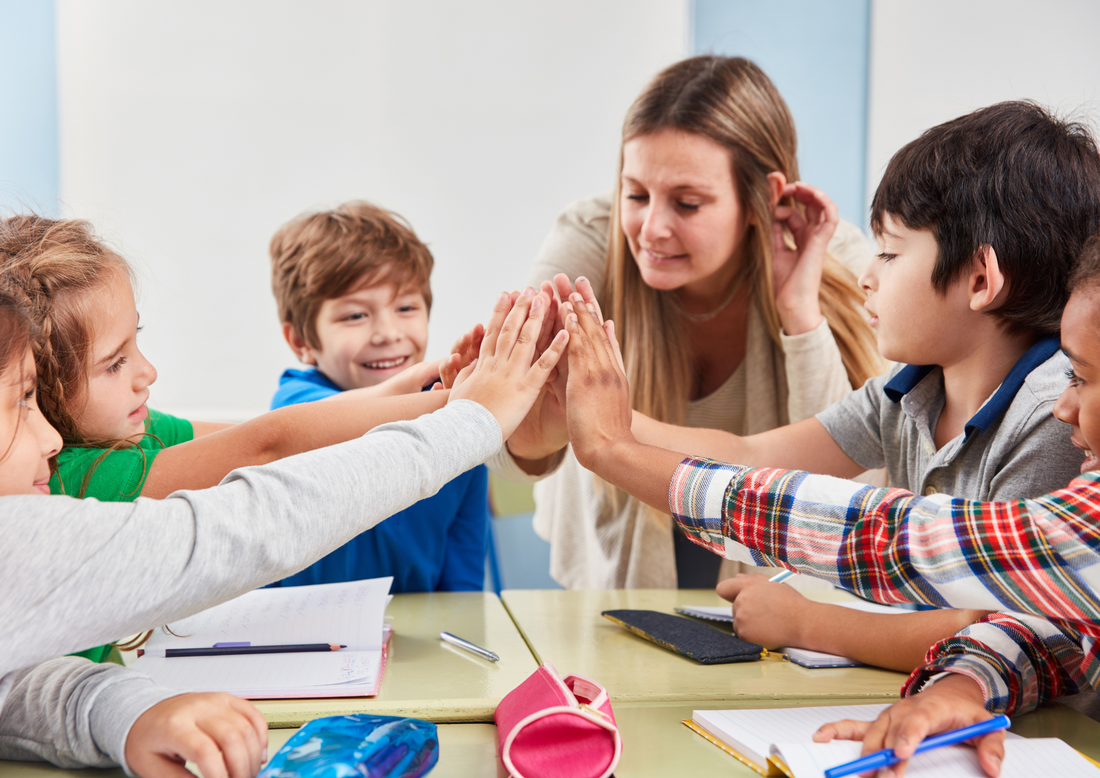
Key Social Skills We Should Teach Our Kids Today
Share
Social skills will help children to navigate their immediate environments, and lay the foundation for successful relationships and interactions throughout their lives. Here are some key social skills that parents should focus on developing in children.
1. Communication
Effective communication is one of the most important social skills to children. Some communication techniques, such as taking turns speaking, maintaining eye contact, and using appropriate tone and volume, can help children build confidence in expressing themselves and understanding others. Toddlers can practice these techniques by discussing busy book (quiet book) activities with their parents and peers.

2. Empathy
Empathy is the ability to understand and share the feelings of others, which is vital for building strong relationships. Parents should teach children to recognize others’ emotions and how to respond with kindness and compassion. Role-playing different busy book (quiet book) scenarios can be a helpful way to practice empathetic responses.

3. Active Listening
Active listening is to correctly understand others, instead of passively hearing their words. It is effective to build rapport with others by nodding, asking questions, and providing feedback. This skill will enhance communication effectiveness and makes others feel valued in conversations.

4. Conflict Resolution
Conflict could happen in any society such as school and playground, so it is essential for our children to learn how to resolve disputes peacefully. Toddlers should always try to express their feelings calmly, listen to the other person's perspective, and work together to find a solution.
5. Sharing and Cooperation
Sharing and cooperation are fundamental skills required in teamwork and collaboration. Kids can work on busy book activities with their parents, friends or siblings to gradually develop these skills. Experience like sharing toys, taking turns during games, and working together on projects is valuable for children to understand compromise, respect for others, and the joy of collective achievement.

6. Patience
In our fast-paced world, patience is a valuable skill but also challenging for children to develop. Practicing patience helps children manage frustration and enhances their ability to cooperate with others. Busy books (quiet books) provide opportunities for kids to engage in activities that require focus and persistence, such as completing a challenging puzzle or finding hidden objects.
7. Respecting Personal Space
It is crucial for kids to know the importance of boundaries when interacting with others. This awareness is important for building respectful relationships and avoiding misunderstandings. Parents can demonstrate this by encouraging kids to work or play independently, such as reading busy books (quiet books), and only join them on request.

8. Non-Verbal Communication
Non-verbal communication, such as body language, facial expressions, and gestures, plays a significant role in networking. It is valuable to discuss these expressions and their possible meanings in various contexts. Also, we should encourage kids to use appropriate body language when communicating with others. It is worth mentioning that characters in busy books can help children to identify different emotions through visual clues and enhance their understanding of non-verbal signals.

Conclusion
Teaching children these key social skills will equip them with the tools they need to navigate their social worlds effectively. We can help our kids build strong relationships and thrive in both their personal and academic lives. Investing time in developing these skills today will pay off as they grow into confident, socially adept individuals ready to face the challenges of tomorrow!


